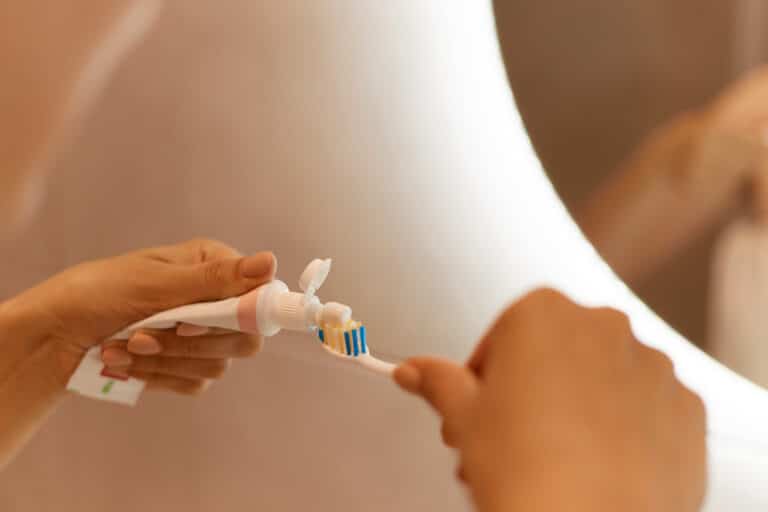A tooth extraction can sound intimidating, but it’s a fairly common dental procedure, and in many cases, it’s exactly what you need to restore your oral health. Whether it’s a routine procedure or a more complicated case involving wisdom tooth extraction, understanding what to expect can help ease any anxiety and prepare you for a quick and smooth recovery.
If you’re facing an upcoming molar tooth extraction, wondering if you require one, or just curious about the process, you’re in the right place. This guide covers everything you need to know about tooth extraction – from the procedure itself to how to care for your mouth afterward. Let’s dive in!
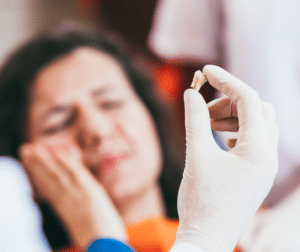
Why Would You Need a Tooth Extraction?
Tooth extraction isn’t something most people think about, but there are valid reasons why a dentist might recommend this procedure. Here are a few common reasons:
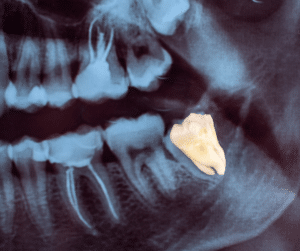
- Severe decay or damage: Sometimes a tooth is so decayed or damaged that it’s beyond repair with a filling orcrown. In these cases, extraction is the best option.
- Gum disease: When the infection in your gums has caused your teeth to loosen, an extraction may be necessary to prevent further complications.
- Overcrowding: Before getting braces or other dental treatments, a dentist might remove a tooth to create space and ensure your teeth can shift into their proper places.
- Wisdom teeth: Wisdom tooth extractions are common, especially for teenagers or young adults. These teeth, which emerge in your late teens or early twenties, are notorious for causing pain, infection, or damage to neighbouring teeth when they don’t have enough space to emerge. In Singapore, MediSave can be used to claim for surgical wisdom tooth extractions if you’re a Singapore citizen or Permanent Resident. MediSave cannot be used for routine extractions, only for surgical ones. Your dentist will determine whether your wisdom tooth requires surgery.
When it comes to wisdom tooth extraction, it’s often a preventive measure to avoid future oral health issues, but molar tooth extraction can also be necessary if the tooth is causing pain, infection, or overcrowding.
The Tooth Extraction Process
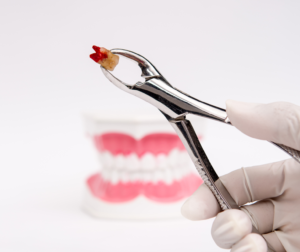
The idea of a tooth extraction may sound daunting, but understanding the process can help alleviate some of the anxiety surrounding the procedure.
Before the extraction begins, your dentist will apply a local anesthetic to numb the area. You’ll be awake during the procedure but won’t feel any pain—just some pressure or movement. If you’re getting a wisdom tooth extraction or have a more complex extraction, sedation might be offered to help you feel more relaxed.
Once the area is numb, the dentist will carefully remove the tooth. If it’s a molar tooth extraction, the process may involve breaking the tooth into smaller pieces for easier removal. After the tooth is removed, a gauze pad will be placed over the extraction site to help stop any bleeding and encourage a blood clot to form.
In some cases, stitches may be required, especially for wisdom tooth extraction or if the extraction was more complicated.
What to Eat After Tooth Extraction
“Can I eat food right after my tooth extraction?” is a common question, and the answer is important for ensuring proper healing. Right after the procedure, it’s critical to stick to a soft-food diet for a few days to avoid putting any pressure on the extraction site.
You’ll want to stay away from spicy foods after tooth extraction as they can irritate the area and disrupt healing. Instead, try foods like yogurt, soups, porridge or congee —anything that doesn’t require much chewing.

Here are some key things to remember about what to eat after teeth extraction:
- Avoid hard, crunchy, or chewy foods: These could cause irritation or damage the extraction site.
- Don’t drink through a straw: The sucking motion can dislodge the blood clot that’s forming in the socket, leading to dry socket, which is a painful condition.
- Stick to mild foods: Think soft, bland foods. Avoid anything too hot, spicy, or acidic in the days following the procedure.
Once your pain and swelling subside, you can gradually reintroduce more solid foods into your diet. But it’s important to listen to your body—if something feels too painful, it’s best to avoid it.
Your Tooth Extraction Recovery Process: What to Expect
After your tooth extraction, your dentist will provide aftercare instructions to help you heal quickly and avoid complications. You might experience some mild pain, swelling, and bleeding for the first 24 hours, which is completely normal. To manage this, try the following:
- No smoking: Smoking can impair the healing process and increase the
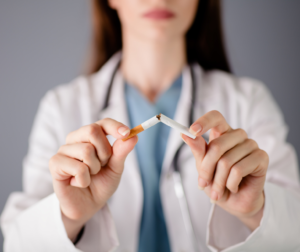 risk of infection, so try to refrain fromsmoking for as long as possible.
risk of infection, so try to refrain fromsmoking for as long as possible. - Ice packs: Apply an ice pack to your cheek for 20-minute intervals to reduce swelling.
- Rest: It’s essential to rest and avoid strenuous activity for the first couple of days to give your body the best chance to heal.
- Pain relief: Your dentist may recommend over-the-counter pain medication, or in some cases, a stronger prescription if necessary.
- Oral hygiene: Brush your teeth gently but avoid the extraction site for the first few days. You can rinse with salt water to keep the area clean.
If you experience severe pain, excessive swelling, or notice any signs of infection (such as pus or fever), it’s essential to reach out to your dentist immediately. It’s better to address any potential issues early on to ensure a smooth recovery.
How Long Does It Take to Recover from a tooth extraction?
Most people recover from a tooth extraction within 1-2 weeks, but the full healing process can take longer, especially if you’ve had a wisdom tooth extraction or molar tooth extraction. The gum tissue will heal quickly, but the bone inside the socket can take several months to fully recover.
If you’re getting a wisdom tooth extraction, recovery might take a bit longer because of the complexity of the procedure. In general, it’s best to give yourself time to rest and take things slow as your mouth heals. Our dentists at WeSmile Dental provide a more detailed and tailored recovery plan based on your specific extraction, ensuring you heal as smoothly and comfortably as possible
To Summarise: A Healthy Smile Starts with Proper Care
After any tooth extraction, the key to a smooth recovery is following your dentist’s instructions and being mindful of your diet and activity level. Whether it’s a wisdom tooth extraction or molar tooth extraction, the proper care will ensure that you heal quickly and avoid complications like dry socket or infection.

And if you ever find yourself in need of expert dental care, WeSmile Dental Care is here for you. With a team of experienced professionals and clinics across Singapore, we’re ready to guide you through every step of the tooth extraction process—from pre-procedure advice to post-op care. Book your consultation today!
FAQ: Your Tooth Extraction Questions Answered
1. How soon after a tooth extraction can I eat?
It’s best to wait at least a couple of hours after the extraction before eating anything. Start with soft foods, and avoid anything hard or crunchy for the first few days.
2. Can I drink coffee or hot beverages after a tooth extraction?
It’s advisable to avoid hot drinks for the first few days. Hot beverages can irritate the extraction site and disrupt the healing process.
3. How long should I rest after a tooth extraction?
Resting for at least 24-48 hours is essential to give your body the time it needs to heal. Avoid strenuous activities until your dentist gives the all-clear.
4. How can I prevent infection after tooth extraction?
Follow your dentist’s aftercare instructions, including brushing gently around the extraction site and avoiding smoking. Using an antibacterial mouthwash may also help keep the area clean.
5. Can I eat spicy food after tooth extraction?
It’s best to avoid spicy foods after tooth extraction for a few days, as they can irritate the extraction site and cause discomfort.
6. What should I do if I feel severe pain after a tooth extraction?
If you experience severe pain that doesn’t subside with medication, contact your dentist. This could indicate a complication like dry socket or an infection.
With these tips, you’re ready to navigate the tooth extraction process with confidence. If you need personalised care or have more questions, don’t hesitate to contact WeSmile Dental Care —your trusted partner in dental health! Our team of experienced dentists specialises in tooth extractions and can provide expert advice. If you’re concerned or wondering whether you need an extraction, schedule a dental check-up with us for a professional assessment.


